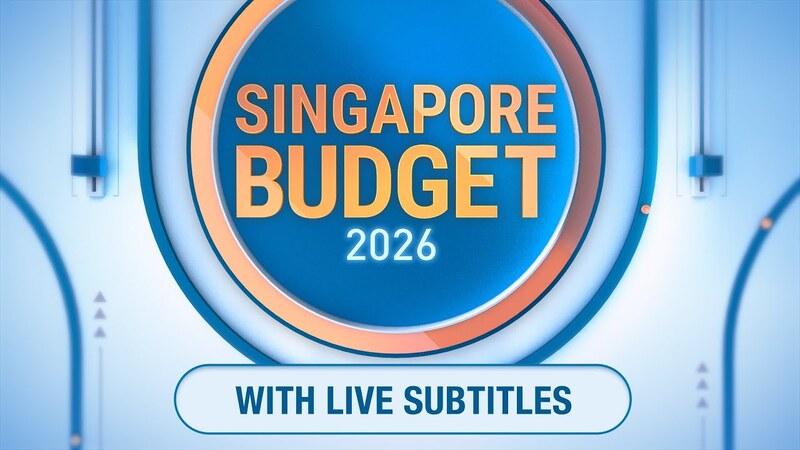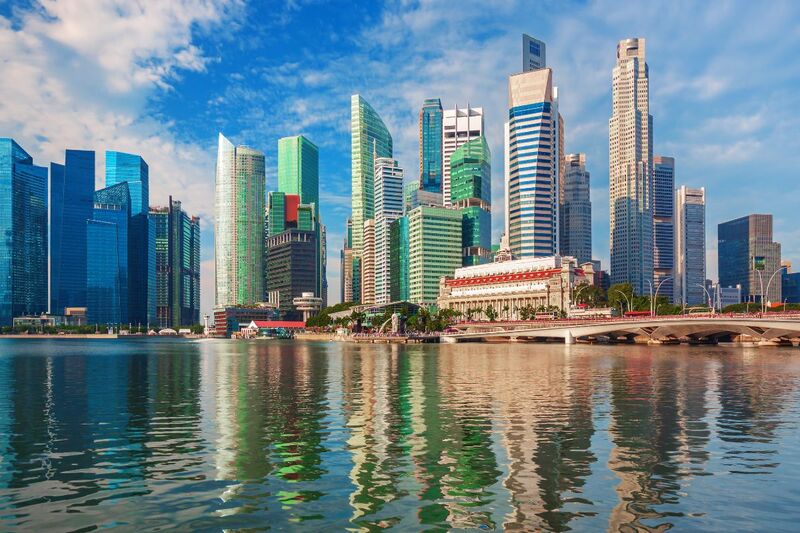Singapore’s 2025 Cabinet Revealed: What Every Employer and Worker Should Know
On May 21, 2025, Prime Minister Lawrence Wong unveiled his first full Cabinet, following his swearing-in as Singapore’s fourth Prime Minister earlier this month. This landmark reshuffle is more than a political milestone — it reflects Singapore’s forward-facing approach to governance in a time of geopolitical shifts, rapid digital transformation, and evolving workforce expectations.
For employers, employees, and jobseekers, this new Cabinet provides critical signals about the nation’s direction — from economic policy to social inclusion and workforce development.
Key Appointments in the 2025 Cabinet
Singapore’s refreshed leadership team balances experience with renewal:
- Gan Kim Yong remains Deputy Prime Minister and Minister for Trade and Industry, offering continuity in Singapore’s economic stewardship.
- Chan Chun Sing becomes Minister for Defence and Coordinating Minister for Public Services, leveraging his SAF background and broad experience to oversee national resilience and transformation in the public sector.
- K. Shanmugam retains his Home Affairs portfolio and steps into the role of Coordinating Minister for National Security, focusing on law and order, and national stability.
- Ong Ye Kung continues as Health Minister and is now Coordinating Minister for Social Policies, with oversight of long-term health, education, and inclusion initiatives.
- Desmond Lee moves to the Ministry of Education — signalling continued focus on lifelong learning, skills development, and education reforms.
- Chee Hong Tat takes over National Development, with responsibilities around housing, sustainability, and urban growth.
- New appointees David Neo and Jeffrey Siow join the Cabinet as Acting Ministers, marking a generational shift and a signal of talent renewal.
To complete the picture, Singapore’s 2025 Cabinet also includes several key leaders whose portfolios impact workforce development, sustainability, and economic resilience. Notably, Lawrence Wong remains Minister for Finance alongside his Prime Ministerial role, and Tan See Leng continues to shape manpower policy — critical for employers navigating foreign talent regulations. Grace Fu, Josephine Teo, and Indranee Rajah lead portfolios vital to ESG, digital transformation, and population strategy. The inclusion of new faces like David Neo and Jeffrey Siow marks a significant step in leadership renewal, while veterans like Teo Chee Hean now serve as Senior Ministers, continuing to provide counsel.
🏛️ Key Ministers in Singapore’s 2025 Cabinet
| Minister | Portfolio(s) |
|
Lawrence Wong |
Prime Minister, Minister for Finance |
|
Gan Kim Yong |
Deputy Prime Minister, Minister for Trade and Industry |
|
K. Shanmugam |
Minister for Home Affairs, Coordinating Minister for National Security |
|
Chan Chun Sing |
Minister for Defence, Coordinating Minister for Public Services |
|
Ong Ye Kung |
Minister for Health, Coordinating Minister for Social Policies |
|
Desmond Lee |
Minister for Education |
|
Chee Hong Tat |
Minister for National Development |
|
Tan See Leng |
Minister for Manpower, Second Minister for Trade and Industry |
|
Edwin Tong |
Minister for Law, Second Minister for Home Affairs |
|
Grace Fu |
Minister for Sustainability and the Environment |
|
Josephine Teo |
Minister for Communications and Information, Second Minister for Home Affairs |
|
Masagos Zulkifli |
Minister for Social and Family Development, Second Minister for Health |
|
Indranee Rajah |
Minister in the Prime Minister’s Office, Second Minister for Finance |
|
David Neo (New) |
Acting Minister for Culture, Community and Youth |
|
Jeffrey Siow (New) |
Acting Minister of State (specific role pending confirmation) |
|
Teo Chee Hean |
Senior Minister (formerly Coordinating Minister for National Security) |
What This Means for Singapore’s Future
This reshuffle is not merely symbolic. It charts a strategic course for a Singapore that is:
- Economically adaptive in the face of global uncertainties.
- Technologically ambitious with a clear Smart Nation roadmap.
- Socially resilient with inclusive growth and ageing population strategies.
- Governance-oriented with a focus on renewal, continuity, and steady leadership.
Implications for Businesses and Employers
1. Continued Policy Stability in Trade, Manpower, and Digitalisation
With Gan Kim Yong remaining at Trade and Industry, businesses can expect continuity in Singapore’s pro-investment, pro-innovation stance. Initiatives like the Enterprise Sustainability Programme and SkillsFuture Enterprise Credit are likely to stay supported and even scaled up.
2. Greater Emphasis on Workforce Upskilling and Lifelong Learning
Desmond Lee’s move to Education, paired with Ong Ye Kung’s expanded role in Social Policies, indicates a strengthened commitment to building a future-ready workforce. Companies can anticipate more government support for training grants, career conversion programmes, and collaboration with IHLs (Institutes of Higher Learning) to close skill gaps.
3. Urban Development and Sustainability in the Foreground
Chee Hong Tat’s appointment to National Development suggests an ongoing push in sustainable urban planning and housing affordability — indirectly benefiting sectors like construction, green tech, and real estate services.
4. A Renewed Focus on Public Sector Transformation
With Chan Chun Sing overseeing public services, expect a strong push for tech integration, service efficiency, and citizen-centric digital delivery — which may cascade into expectations for similar innovation from the private sector.
5. Youth Engagement and Culture Economy
The inclusion of David Neo at MCCY reflects a deliberate strategy to connect with younger Singaporeans and nurture the creative, sports, and community sectors. Businesses in lifestyle, wellness, education, and content industries should pay attention to cultural and youth-focused policies that may open new funding and partnership opportunities.
Implications for Workers and Jobseekers
1. Clarity in Career Mobility and Skills Pathways
Workers can expect stronger alignment between education and employment. The refreshed Cabinet signals continued investment in clear, stackable training options and employment matching via platforms like MyCareersFuture.
2. Growing Demand for Digital, Green, and Care Economy Skills
Policies are expected to stay focused on supporting jobs in AI, data science, cybersecurity, sustainability, aged care, and mental health — reinforcing where future job opportunities will emerge.
3. More Inclusive Support for Mid-Career Professionals
Programmes such as the SGUnited Mid-Career Pathways, Workfare Income Supplement, and job redesign grants are expected to remain priorities. If you’re changing industries or re-entering the workforce, this Cabinet is likely to offer continuity in support schemes.
4. Workplace Flexibility and Wellness May See Further Support
With the Health Ministry under Ong Ye Kung continuing to champion mental well-being and social equity, workers may see more initiatives promoting flexible work, caregiving support, and mental health benefits at work.
Conclusion
Singapore’s 2025 Cabinet is more than a leadership refresh — it’s a strategic blend of governance continuity and progressive renewal. For businesses, this reshuffle reflects a stable yet responsive approach to policy, especially in trade, skills, and sustainability. For workers, it promises continued support in career progression, education, and social resilience.
At Reeracoen, we believe policy shifts are deeply intertwined with talent strategy. As this new Cabinet sets its course, we’ll continue guiding companies and jobseekers through change — with data, empathy, and insight.
Seeking Your Next Career Opportunity?
Submit your CV — Our trusted Career Consultants will review your resume and contact you if we find a position that matches your profile!
OR
Looking to Hire?
Please fill in this Inquiry Form — our Recruitment Consultants will be in touch with you soon!
Disclaimer:
The information provided in our blog articles is intended for general informational purposes only. It is not a substitute for professional advice and should not be relied upon as such.
While we strive to provide accurate and up-to-date information, the ever-evolving nature of certain topics may result in content becoming outdated or inaccurate over time. Therefore, we recommend consulting with qualified professionals or experts in the respective fields for specific advice or guidance. Any actions taken based on the information contained in our blog articles are solely at the reader's discretion and risk. We do not assume any responsibility or liability for any loss, damage, or adverse consequences incurred as a result of such actions.
We may occasionally provide links to external websites or resources for further information or reference. These links are provided for convenience and do not imply endorsement or responsibility for the content or accuracy of these external sources. Our blog articles may also include personal opinions, views, or interpretations of the authors, which do not necessarily reflect the views of our organisation as a whole. We encourage readers to verify the accuracy and relevance of information presented in our blog articles and to seek professional advice when needed. Your use of this website and its content constitutes acceptance of this disclaimer.
References:
- https://www.pmo.gov.sg/Newsroom/Changes-to-Cabinet-and-Other-Appointments-May-2025
- https://www.channelnewsasia.com/singapore/lawrence-wong-cabinet-reshuffle-gan-kim-yong-chan-chun-sing-ong-ye-kung-5144301
- https://www.straitstimes.com/singapore/politics/pm-lawrence-wong-unveils-new-cabinet-post-ge2025-says-its-the-strongest-team-for-spore
- https://www.bloomberg.com/news/articles/2025-05-21/singapore-prime-minister-unveils-new-cabinet-cna-says
- https://www.scmp.com/week-asia/politics/article/3311243/singapore-pm-reveals-cabinet-including-new-defence-chief-and-2-fresh-faces
- https://www.gov.sg/article/sg-budget-2025-key-highlights
- https://www.mom.gov.sg/employment-practices/skillsfuture-career-transition-programme





